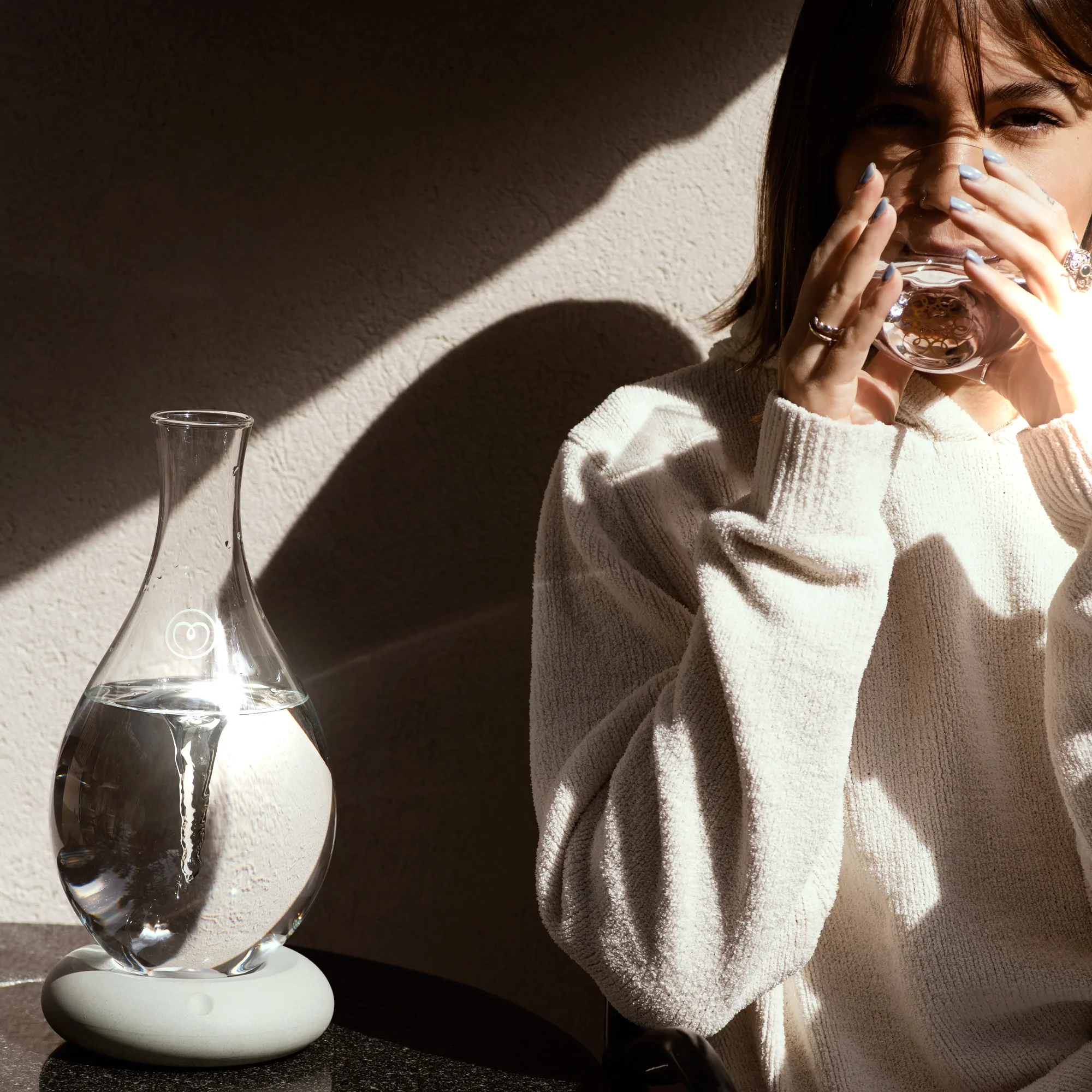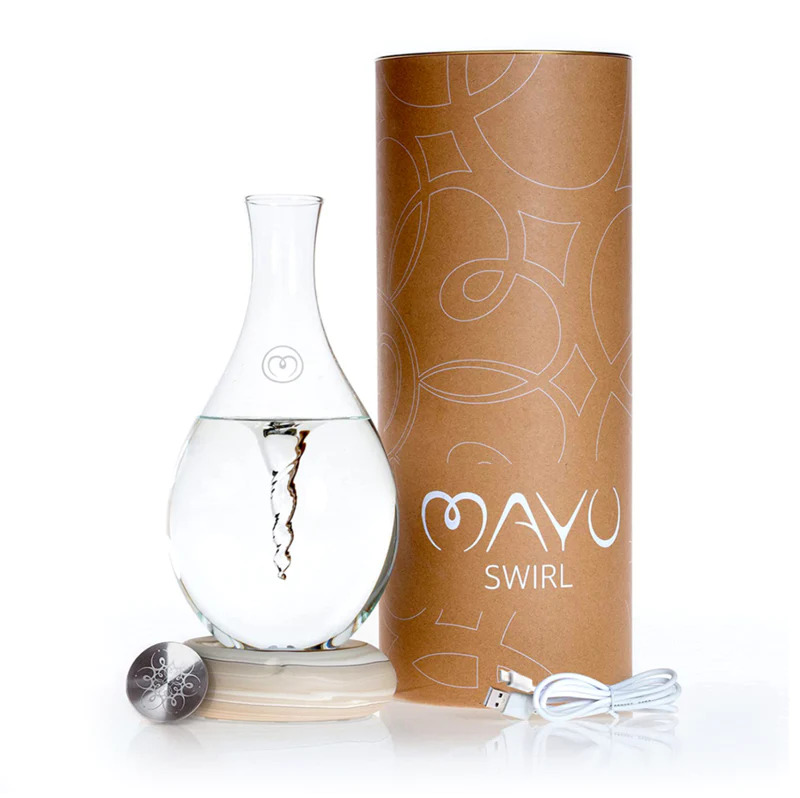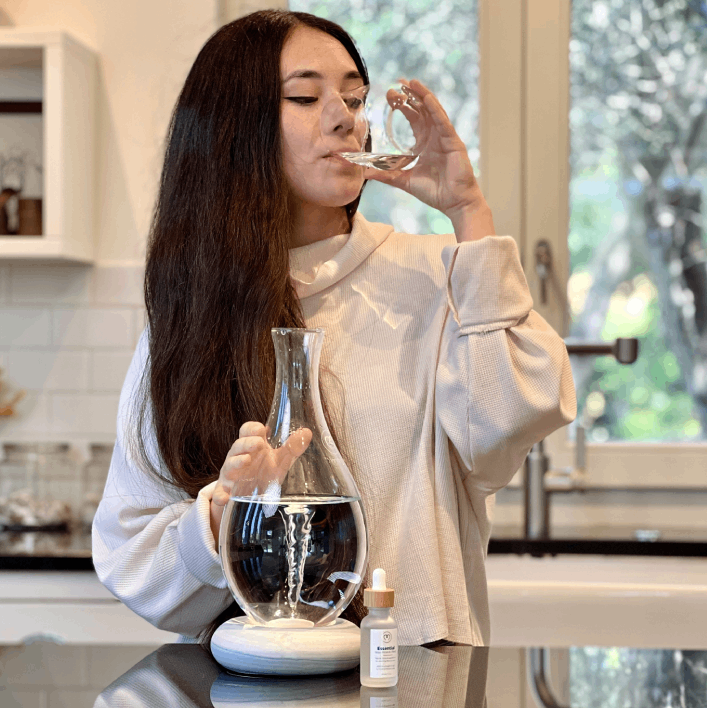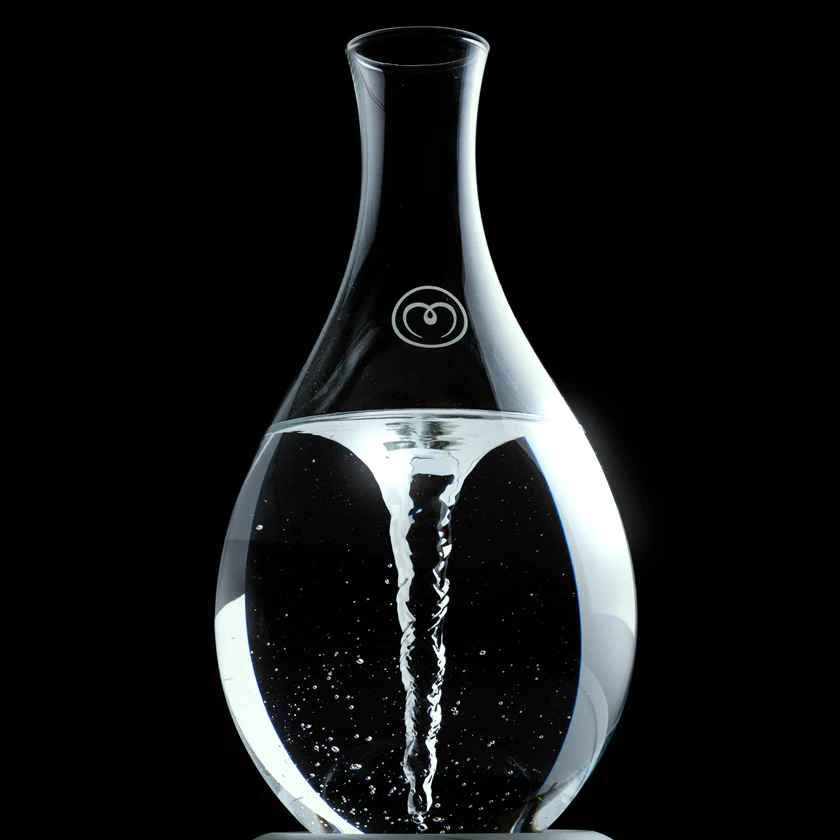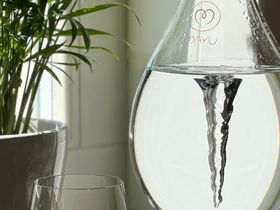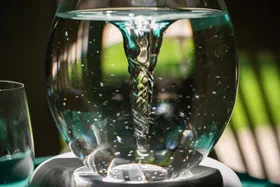5 Best Substitutes for Distilled Water: Top Alternatives Explained
Struggling to find distilled water or wondering if there's a better option? You’re not alone—availability, cost, and practicality are all real concerns. This guide breaks down the best alternatives for every type of use.
Updated May 6, 2025

Distilled water is known for being exceptionally pure, but it’s not always easy to get your hands on. Whether it’s unavailable in shops, too expensive, or just inconvenient, many people are looking for a reliable substitute.
But what can you use instead of distilled water without compromising quality, safety, or results? Let’s find out.
» Improve your tap water with the Mayu Swirl
What Makes Distilled Water Different?
Distilled water has been boiled and condensed, removing nearly all minerals, salts, and contaminants. It has a total dissolved solids (TDS) level of close to zero, meaning it’s extremely pure.
Unlike tap or filtered water, it doesn’t leave residue, carry bacteria, or interfere with chemical processes. That’s why it’s often used where cleanliness and precision are essential[1].
» What is the difference between distilled and reverse osmosis water?
Where Is Distilled Water Commonly Used?
Distilled water is essential in areas where purity directly affects performance, hygiene, or health. Some key uses include:
- Medical and Healthcare: for sterilising tools, wound care, and devices like CPAP machines or humidifiers
- Pharmaceutical and Lab Work: to avoid chemical interference in tests or formulations
- Industrial Applications: like lead–acid batteries or cooling systems
- Home Appliances: such as steam irons and aquariums
- Cosmetics and Food Processing: to avoid mineral contamination in products
» Discover the healthiest types of water to drink
Why Do People Look for Substitutes for Distilled Water?
Cost
Distilled water is costly because it requires energy-intensive processing. Industrial methods like Multi-Stage Flash (MSF) distillation consume around 23–27 kWh per cubic metre of water[2]. If hard water is used, additional steps like softening are required to prevent scale, adding to the expense.
Availability
In some places, distilled water can be hard to find. Shelves may be empty during natural disasters or public health emergencies. Not everyone has a home distiller, and manually distilling water is inefficient. This makes it impractical for regular users.
Environmental impact
Distillation uses more energy than other purification methods like reverse osmosis (RO) or carbon filtration[3]. For those aiming to reduce their carbon footprint, switching to filtered or RO water is often the more sustainable option.
» What's better for the environment: glass or plastic water bottles?
Top Alternatives to Distilled Water
Here are the best substitutes for distilled water, their key properties, best uses, and when you should avoid them.
1. Deionised (DI) Water
Deionised water is treated using ion-exchange resins to remove all charged ions like calcium, magnesium, and chloride. It has near-zero conductivity.
Best for:
- Lab cleaning and experiments
- Use in humidifiers and irons
- Rinsing appliances to avoid scaling
When to avoid:
Not suitable for drinking—DI water lacks minerals and can cause electrolyte imbalance if consumed long-term. It may also leach ions from metals in piping. In medical settings, it isn’t sterile, so it’s not a fit for respiratory therapy devices or wound care.
» Which is better—Reverse Osmosis or Deionised water?
2. Filtered or Purified Bottled Water
Purified or filtered bottled water is tap water that has been treated by carbon filters or reverse osmosis, then bottled. Brands like Aquafina or Nestlé Pure Life are common examples.
Best for:
- Drinking and cooking
- A temporary substitute for CPAPs or humidifiers (if labelled purified or distilled)
- General household use
When to avoid:
This water is not mineral-free, so it can cause scale buildup in appliances like irons and humidifiers over time. It is also not sterile, so don’t use it for medical equipment or wound irrigation unless clearly labelled.
» Find out if bottled water is a good alternative to tap water
3. Sterile (Medical-Grade) Water
Sterile water is water that is free of all bacteria, viruses, and fungi, and is predominantly used in hospitals. It may still contain minerals unless also demineralised.
Best for:
- CPAP machines, nebulisers, nasal irrigation
- Wound cleansing and sensitive procedures
When to avoid:
This water is not designed for drinking or long-term storage. Unless also distilled or deionised, it can leave residues in appliances. It’s expensive and usually single-use, so not practical for general household needs.
4. Reverse Osmosis (RO) Water
This water has been forced through a semipermeable membrane, removing 95–99% of contaminants and minerals.
Best for:
- Humidifiers, irons, CPAP machines
- Drinking, especially when remineralised
- Home labs and aquarium care
When to avoid:
Not sterile—the process won’t remove all microbes unless paired with UV sterilisation. Filter maintenance is crucial, or impurities can return. May not match the ultra-purity of distilled water in highly sensitive chemical or medical uses.
» Here are some better-tasting alternatives to reverse osmosis water
5. Boiled Water
This is tap water brought to a rolling boil for at least 1 minute (3 minutes at elevation) to kill pathogens.
Best for:
- Drinking, cooking, and brushing teeth in emergencies
- Baby formula and camping
- Rinsing or washing when no other options are available
When to avoid:
Boiling doesn’t remove minerals or heavy metals. It’s not suitable for appliances that need mineral-free water, like steam irons or CPAPs. Over time, it can lead to scale and microbial contamination.
Can You Mix Distilled Water With Other Types?
Yes—blending distilled water with filtered or mineral water can make it more palatable for drinking. This restores essential electrolytes and improves taste. It can also help reduce costs for general household uses like ironing or steaming.
However, mixing it for sensitive applications (like CPAPs, wound care, or lab work) is risky. Added minerals or microbes from the other water can defeat the purpose of using distilled in the first place. For anything health- or precision-related, stick to 100% distilled or sterile water.
» Find out if mineral water is good for you
When Is Distilled Water Non-Negotiable?
Kidney Dialysis
Water for dialysis must be free of toxins and minerals. Even trace levels of aluminium, nitrates, or chlorine can enter the bloodstream and cause serious harm[5]. Tap or bottled water isn’t safe. Hospitals use high-purity distilled or RO water with extra sterilisation.
Lab Work and Analytical Chemistry
Chemistry labs depend on consistency. Tap or bottled water can introduce unknown minerals that affect pH, reactions, or test results. For titrations, spectroscopy, or chromatography, only distilled or ultrapure water ensures accurate results.
Lead–Acid Batteries
These batteries require water free of minerals that would interfere with the chemical reaction. Distilled water maintains electrolyte balance and prevents damage. Using tap water risks short-circuiting or reduced battery life.
Everyday Solutions for Pure Water Needs
Distilled water is incredibly pure, but it’s not always easy to find or practical to use. Luckily, there are safe and effective substitutes for most tasks—just match the water type to what you need. Think RO or deionised water for appliances, and sterile water for medical uses.
For better drinking water, consider the Mayu Swirl. It enhances tap water naturally by spinning it into a vortex, improving oxygenation and taste. It’s a simple, beautiful way to upgrade your daily hydration without the hassle of distillation.
» Improve your water at home with the Mayu Swirl carafe
References
Radiation and health (RAD), “Guidelines for drinking-water quality, 4th edition, incorporating the 1st addendum,” Apr. 24, 2017. Available: https://www.who.int/publications/i/item/9789241549950
N. M. Wade and Hornsby, “Distillation and reverse osmosis energy consumption and costs,” Desalination, vol. 40, no. 3, pp. 245–257, Mar. 1982, doi: 10.1016/s0011-9164(00)88693-2. Available: https://doi.org/10.1016/s0011-9164(00)88693-2
A. J. Morton, I. K. Callister, and N. M. Wade, “Environmental impacts of seawater distillation and reverse osmosis processes,” Desalination, vol. 108, no. 1–3, pp. 1–10, Feb. 1997, doi: 10.1016/s0011-9164(97)00002-7. Available: https://doi.org/10.1016/s0011-9164(97)00002-7
B. Naderi, H. M. Attar, and F. Mohammadi, “Evaluation of some chemical parameters of hemodialysis water: a case study in Iran,” Environmental Health Insights, vol. 16, Jan. 2022, doi: 10.1177/11786302221132751. Available: https://doi.org/10.1177/11786302221132751
Disclaimer: The information published by Mayu Water is not a substitute for the expert knowledge, advice, and recommendations of trained professionals. We strongly recommend consulting with industry experts and primary or scientific sources before making any health, research-related, or other important decisions.




































